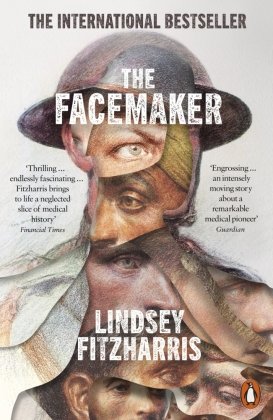THE INTERNATIONAL BESTSELLER
Best Books of the Year, Guardian
The poignant story of the visionary surgeon who rebuilt the faces of the First World War's injured heroes, and in the process ushered in the modern era of plastic surgery
From the moment the first machine gun rang out over the Western Front, one thing was clear: mankind's military technology had wildly surpassed its medical capabilities. The war's new weaponry, from tanks to shrapnel, enabled slaughter on an industrial scale, and given the nature of trench warfare, thousands of soldiers sustained facial injuries. Medical advances meant that more survived their wounds than ever before, yet disfigured soldiers did not receive the hero's welcome they deserved.
In The Facemaker, award-winning historian Lindsey Fitzharris tells the astonishing story of the pioneering plastic surgeon Harold Gillies, who dedicated himself to restoring the faces - and the identities - of a brutalized generation. Gillies, a Cambridge-educated New Zealander, became interested in the nascent field of plastic surgery after encountering the human wreckage on the front. Returning to Britain, he established one of the world's first hospitals dedicated entirely to facial reconstruction in Sidcup, south-east England. There, Gillies assembled a unique group of doctors, nurses and artists whose task was to recreate what had been torn apart. At a time when losing a limb made a soldier a hero, but losing a face made him a monster to a society largely intolerant of disfigurement, Gillies restored not just the faces of the wounded but also their spirits.
Meticulously researched and grippingly told, The Facemaker places Gillies's ingenious surgical innovations alongside the poignant stories of soldiers whose lives were wrecked and repaired. The result is a vivid account of how medicine and art can merge, and of what courage and imagination can accomplish in the presence of relentless horror.


